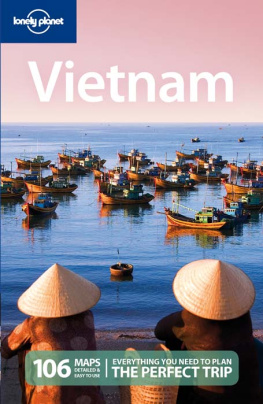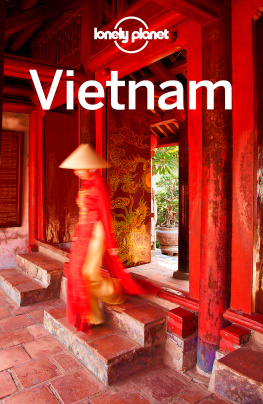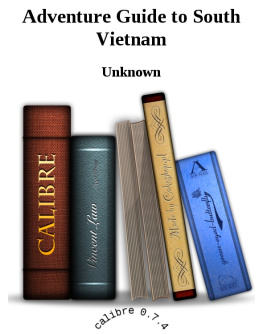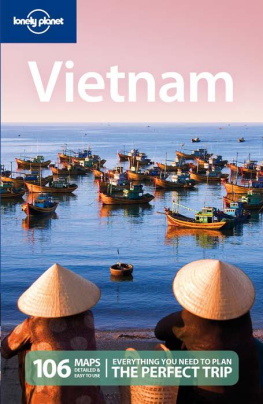William J. Duiker - Ho Chi Minh: A Life
Here you can read online William J. Duiker - Ho Chi Minh: A Life full text of the book (entire story) in english for free. Download pdf and epub, get meaning, cover and reviews about this ebook. year: 2000, publisher: Hyperion, genre: Detective and thriller. Description of the work, (preface) as well as reviews are available. Best literature library LitArk.com created for fans of good reading and offers a wide selection of genres:
Romance novel
Science fiction
Adventure
Detective
Science
History
Home and family
Prose
Art
Politics
Computer
Non-fiction
Religion
Business
Children
Humor
Choose a favorite category and find really read worthwhile books. Enjoy immersion in the world of imagination, feel the emotions of the characters or learn something new for yourself, make an fascinating discovery.
- Book:Ho Chi Minh: A Life
- Author:
- Publisher:Hyperion
- Genre:
- Year:2000
- Rating:5 / 5
- Favourites:Add to favourites
- Your mark:
- 100
- 1
- 2
- 3
- 4
- 5
Ho Chi Minh: A Life: summary, description and annotation
We offer to read an annotation, description, summary or preface (depends on what the author of the book "Ho Chi Minh: A Life" wrote himself). If you haven't found the necessary information about the book — write in the comments, we will try to find it.
Ho Chi Minh: A Life — read online for free the complete book (whole text) full work
Below is the text of the book, divided by pages. System saving the place of the last page read, allows you to conveniently read the book "Ho Chi Minh: A Life" online for free, without having to search again every time where you left off. Put a bookmark, and you can go to the page where you finished reading at any time.
Font size:
Interval:
Bookmark:

For the Vietnamese People
I have been fascinated with Ho Chi Minh since the mid-1960s, when, as a young foreign service officer stationed at the U.S. Embassy in Saigon, I was puzzled by the fact that the Viet Cong guerrillas fighting in the jungles appeared to be better disciplined and more motivated than the armed forces of our ally, the government of South Vietnam. As I attempted to understand the problem, I became convinced that one explanation was the role played by that master motivator and strategist, the veteran Vietnamese revolutionary Ho Chi Minh. After I resigned from the U.S. government to pursue an academic career, I turned my thoughts to writing a biography of that extraordinarily complex figure, but soon realized that there were insufficient source materials available for me to produce a convincing portrayal of his life and career. I therefore put off the project until recently, when an outpouring of information from various countries around the world persuaded me that it was now possible to undertake the task.
In the course of completing this book, which has now been underway for over two decades, I have received assistance from a number of sources. The College Fund for Research in the College of Liberal Arts, as well as the Institute for the Arts and Humanistic Studies at The Pennsylvania State University, provided me with financial support on a number of occasions to undertake research on the subject in France and Vietnam. Through the assistance of Mark Sidel of the Ford Foundation, I was pleased to accompany Marilyn Young and A. Tom Grunfeld on a 1993 trip to Hanoi to explore Ho Chi Minhs relationship with the United States. I would also like to thank the Social Science Research Council and its Indochina Scholarly Exchange Program for awarding me with a grant in 1990 to conduct research on Ho Chi Minh in Hanoi. While I was there, the Institute of History, the University of Hanoi, and the Institute of Marxism-Leninism kindly made arrangements for me to discuss topics of mutual interest with scholars and researchers interested in Ho Chi Minh and the history of the Vietnamese revolution. The Institute of International Relations sponsored an earlier visit in 1985, which included a fascinating visit to Ho Chi Minhs birthplace in Kim Lien village. Among those individuals who have assisted me in my research in Hanoi, I would like to thank Nguyen Huy Hoan of the Ho Chi Minh Museum, Nguyen Thanh of the Revolutionary Museum, and Tran Thanh of the Institute of Marxism-Leninism, all of whom agreed to lengthy interviews. At the University of Hanoi, historians Phung Huu Phu, Le Mau Han, Pham Xanh, and Pham Cong Tung graciously provided me with their time and research materials relating to Ho Chi Minhs life and thought. The late Ha Huy Giap of the Ho Chi Minh Museum and Dang Xuan Ky, then director of the Social Sciences Institute, kindly answered my questions regarding their personal recollections of President Ho. Do Quang Hung, Ngo Phuong Ba, Van Tao, and Tran Huu Dinh at the Institute of History and Luu Doan Huynh of the Institute of International Relations were generous with their time in helping to explore key issues in my research. I would particularly like to thank Vu Huy Phuc, who with patience and good humor served as both escort and fellow researcher during my visit to Vietnam in 1990. More recently, Mr. Hoang Cong Thuy of the Vietnam-American Friendship Society helped to put me in touch with other individuals and sources as I followed the trail of Ho Chi Minh. Duong Trung Quoc of Xua Nay magazine provided me with several useful issues of his magazine. Nguyen Quoc Uy of the Vietnam News Agency has kindly authorized me to reproduce in this book a number of photographs under VNA copyright.
I have visited a number of libraries and archives around the world in pursuit of elusive information on Ho Chi Minhs many travels. In the United States, I would like to thank the staff at the Orientalia Section in the Library of Congress, and Allan Riedy, director of the Echols Collection at the Kroch Library in Cornell University. At the U.S. National Archives in College Park, Maryland, John Taylor and Larry McDonald gave me valuable assistance in locating OSS and State Department records dealing with U.S.-Vietnam relations during and immediately following World War II. In France, I am grateful for the help I received at the Bibliothque Nationale and the Archives Nationales in Paris, and especially at the Centre des Archives, Section Outre-Mer, in Aix-en-Provence. During my visit to Moscow in 1990, Gennadi Maslov, Yevgeny Kobelev, and Oxana Novakova were quite helpful in discussing issues relating to Ho Chi Minhs years in the USSR, while Sophie Quinn-Judge and Steve Morris provided me with important documents that they had managed to locate in the Comintern archives. Li Xianheng at the Revolutionary Museum in Guangzhou provided me with the fruits of his own research on Ho Chi Minhs years of residence in that city and took me for a fascinating visit to the training institute where Ho Chi Minh had taught over seventy years ago. Thanks are also due to Tao Bingwei and Ye Xin at the Institute of International Studies in Beijing for a lengthy interview in 1987 on Sino-Vietnamese relations. Bob OHara helped me to obtain relevant documents from the Public Record Office in London. While the search turned up little of interest, I feel comfortable that he explored every possible avenue on my behalf. I would also like to thank Professor Laura Tabili of the University of Arizona for providing useful guidance in seeking out other possible sources of information on Hos elusive years of residence in Great Britain, as well as the staff at the Hong Kong branch of the PRO for enabling me to make use of its archival materials dealing with Ho Chi Minhs period of imprisonment there in the early 1930s. Ambassador T.N. Kaul was useful in discussing his recollection of the meeting between Jawaharlal Nehru and Zhou Enlai in the summer of 1954.
I have become indebted to a number of fellow scholars and researchers who share my interest in Ho Chi Minh and the history of the Vietnamese revolution. In some cases, a mere listing of their names appears to be an all too insufficient mark of gratitude, since many of them have provided me with crucial documents, or with access to their own research on related topics. Nevertheless, I would like to cite their names here. In the United States, Douglas Pike and Steve Denny of the Indochina Archives, now located at Texas Tech University, gave me useful assistance during an earlier visit to their archives when it was located in Berkeley. Others who have been of help are the late King C. Chen, Stanley Karnow, Bill Turley, Gary Tarpinian, and Mai Elliott. John McAuliff of the U.S.-Indochina Reconciliation Project was kind enough to invite me to attend the conference of Vietminh and OSS veterans held at Hampton Bays, New York, in 1998. A number of those who attended that conference, including Frank White, Henry Prunier, Carlton Swift, Mac Shinn, Frank Tan, George Wicks, Ray Grelecki, and Charles Fenn, as well as a delegation of Vietminh veterans and scholars who were also in attendance, shared their own fascinating experiences of that period with me. On an earlier occasion, I had the good fortune to discuss Ho Chi Minh with Archimedes (Al) Patti, whose own recollections, contained in his book Why Vietnam? Prelude to Americas Albatross (Berkeley: University of California Press, 1980), are an irreplaceable source of information on the subject. Bob Bledsoe, chairman of the Department of Political Science at the University of Central Florida, graciously permitted me to examine the Patti archives, which are now held at his University. I would like to thank Als widow, Margaret, for her permission to reproduce photos from that archive in this book.
Next pageFont size:
Interval:
Bookmark:
Similar books «Ho Chi Minh: A Life»
Look at similar books to Ho Chi Minh: A Life. We have selected literature similar in name and meaning in the hope of providing readers with more options to find new, interesting, not yet read works.
Discussion, reviews of the book Ho Chi Minh: A Life and just readers' own opinions. Leave your comments, write what you think about the work, its meaning or the main characters. Specify what exactly you liked and what you didn't like, and why you think so.

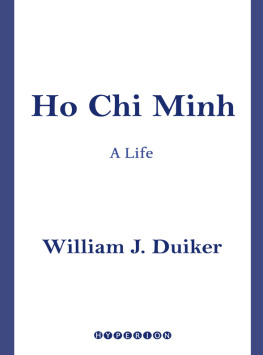
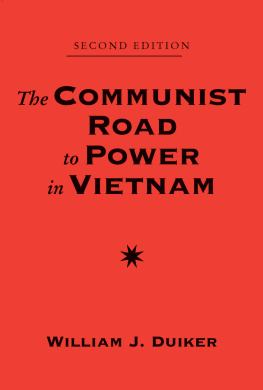

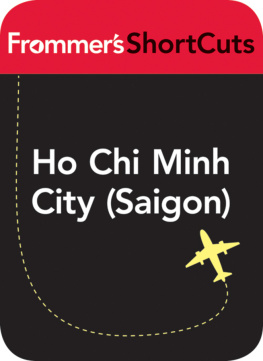
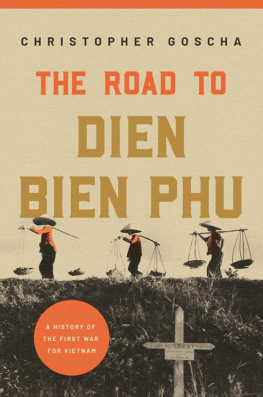
![Vietnam. Army - Ho Chi Minh: [a life]](/uploads/posts/book/242273/thumbs/vietnam-army-ho-chi-minh-a-life.jpg)
